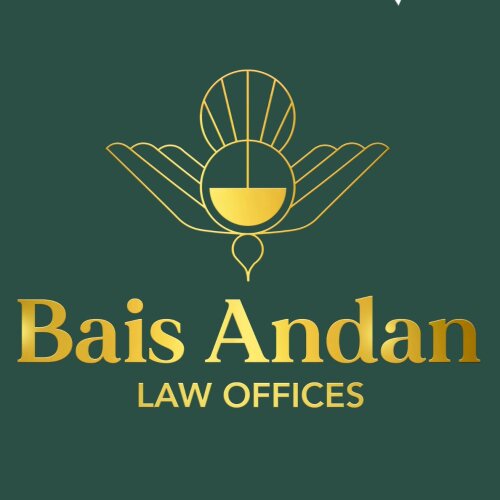Best Hiring & Firing Lawyers in Angeles City
Share your needs with us, get contacted by law firms.
Free. Takes 2 min.
List of the best lawyers in Angeles City, Philippines
About Hiring & Firing Law in Angeles City, Philippines
Hiring and firing practices in Angeles City, much like the rest of the Philippines, are governed by both local ordinances and the national labor code. These laws are designed to protect the rights of both employers and employees, ensuring fair treatment throughout the employment process. Angeles City, as a part of the highly urbanized area of Pampanga, adheres to the regulations set forth by the Department of Labor and Employment (DOLE), while also considering local employment trends and issues.
Why You May Need a Lawyer
In the landscape of employment, misunderstandings and legal disputes can arise at any stage of hiring or termination. Common situations where legal advice may be essential include disputes over employment contracts, wrongful termination cases, issues of discrimination, compliance with local and national labor laws, processing of final pay, and resolving disputes related to employee benefits and working conditions. A lawyer can provide expertise and advocacy to navigate these challenges, ensuring that your rights and obligations are protected and understood.
Local Laws Overview
The key legal framework governing hiring and firing in Angeles City is predominantly based on the Philippines' Labor Code. Important elements include:
- Just and Authorized Causes for Termination: Employers must have valid grounds for dismissing an employee, categorized as just causes (e.g., serious misconduct) and authorized causes (e.g., redundancy).
- Due Process: Employees are entitled to due process, which involves notice and hearing before termination.
- Non-Discrimination Clause: Employers must ensure equal opportunity for all, regardless of race, sex, age, and other personal characteristics.
- Employment Contracts: These agreements dictate the terms of employment and are legally binding.
- Final Pay Processing: Employers are obligated to provide final pay and benefits within a specific period post termination.
Frequently Asked Questions
What are the typical reasons an employer can legally fire an employee in Angeles City?
Legal reasons for termination can include just causes such as serious misconduct, habitual neglect of duties, or fraud. Authorized causes include redundancy, retrenchment, or the closure of the business.
What should an employment contract include?
An employment contract should detail the terms of employment, including job responsibilities, salary, working hours, benefits, and grounds for termination.
How does the due process for termination work?
Due process involves two notifications: a notice of intent to dismiss specifying grounds for termination and a notice of decision after the employee is given a chance to respond.
What is an employee's recourse if they believe they were unfairly dismissed?
Employees can file a complaint with the National Labor Relations Commission (NLRC) or the Department of Labor and Employment (DOLE) seeking redress.
Are employers required to provide severance pay?
Yes, under certain circumstances such as authorized causes for termination, employers might be required to provide severance pay, commonly known as separation pay.
What legal protections do employees have against discrimination?
Employees are protected from discrimination based on age, gender, sexual orientation, disability, race, or religion, as stipulated in both the Labor Code and various national laws.
Who oversees employment law compliance in Angeles City?
The Department of Labor and Employment (DOLE) is the primary body responsible for ensuring labor law compliance in Angeles City.
Can employers use probationary periods, and for how long?
Yes, employers can set probationary periods, which usually do not exceed six months, to assess an employee's performance and fit within the organization.
What happens if an employer fails to comply with final pay procedures?
An employee can file a complaint with the DOLE to recover any outstanding wages or benefits if an employer fails to comply with final pay obligations.
How can employers ensure compliance with both national and local laws?
Employers can ensure compliance by regularly consulting with legal experts and staying updated with DOLE's memorandums and labor advisories.
Additional Resources
For those seeking more information or assistance, the following resources can be invaluable:
- Department of Labor and Employment (DOLE): Provides comprehensive details on labor laws and employee rights.
- National Labor Relations Commission (NLRC): Offers dispute resolution between employees and employers.
- Local Bar Associations: Offer legal referrals and consultations in Angeles City.
- Non-Governmental Organizations (NGOs): Focus on workers' rights advocacy and education.
Next Steps
If you find yourself needing legal assistance related to hiring and firing, consider taking the following steps:
- Document all related communications and agreements with your employer or employee.
- Consult with a labor lawyer specializing in Philippine labor law to understand your rights and obligations.
- Utilize resources provided by DOLE and NLRC for guidance and support in filing complaints or seeking redress.
- Attend seminars or workshops related to labor rights organized by local NGOs or governmental bodies to stay informed.
With the right information and expert guidance, you can navigate the complexities of hiring and firing laws in Angeles City effectively and fairly.
Lawzana helps you find the best lawyers and law firms in Angeles City through a curated and pre-screened list of qualified legal professionals. Our platform offers rankings and detailed profiles of attorneys and law firms, allowing you to compare based on practice areas, including Hiring & Firing, experience, and client feedback.
Each profile includes a description of the firm's areas of practice, client reviews, team members and partners, year of establishment, spoken languages, office locations, contact information, social media presence, and any published articles or resources. Most firms on our platform speak English and are experienced in both local and international legal matters.
Get a quote from top-rated law firms in Angeles City, Philippines — quickly, securely, and without unnecessary hassle.
Disclaimer:
The information provided on this page is for general informational purposes only and does not constitute legal advice. While we strive to ensure the accuracy and relevance of the content, legal information may change over time, and interpretations of the law can vary. You should always consult with a qualified legal professional for advice specific to your situation.
We disclaim all liability for actions taken or not taken based on the content of this page. If you believe any information is incorrect or outdated, please contact us, and we will review and update it where appropriate.










